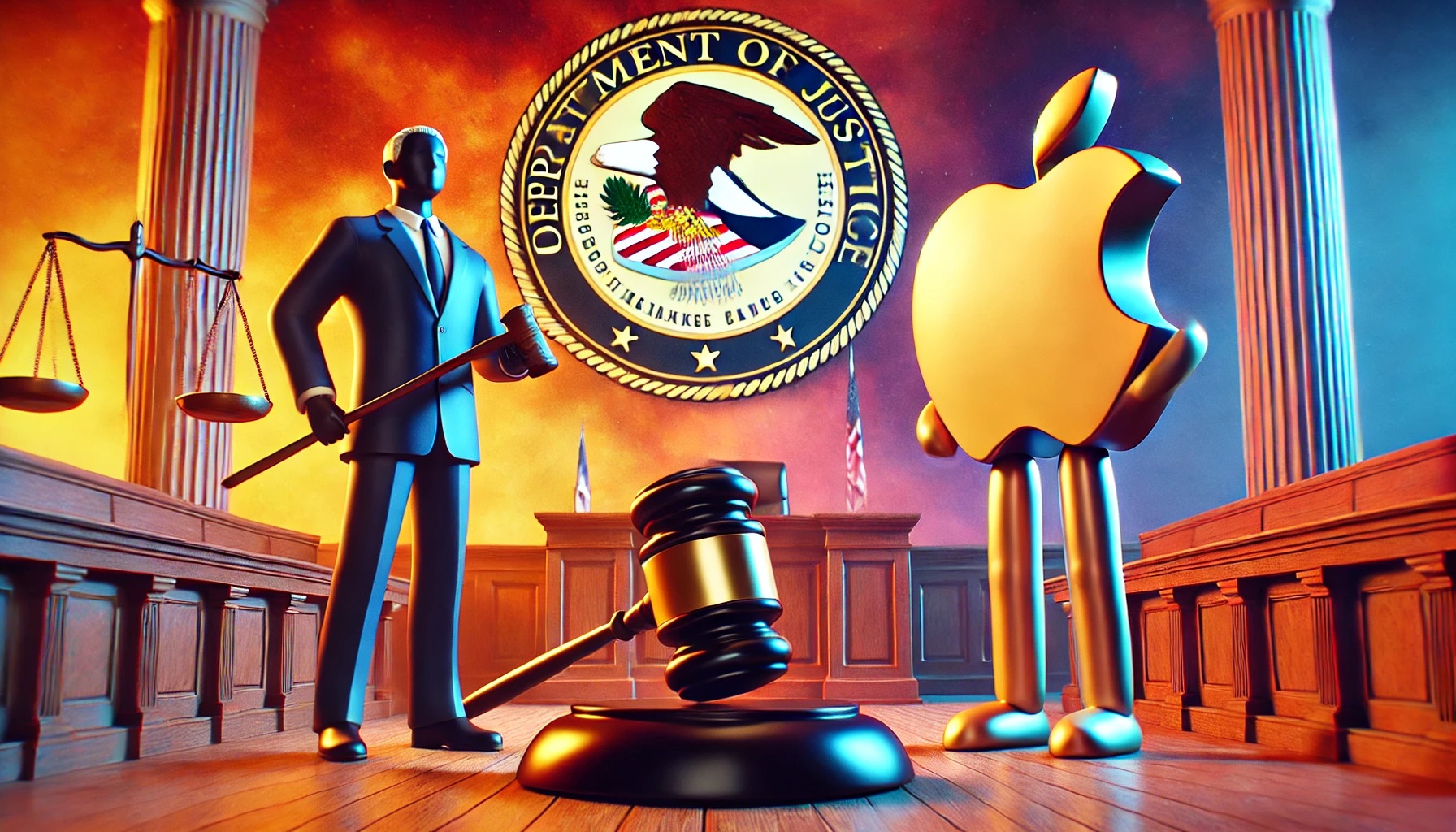In a pivotal antitrust battle, Apple has requested a U.S. judge dismiss the DOJ lawsuit accusing the iPhone maker of stifling competition in the smartphone market. The case is the latest in ongoing scrutiny of Big Tech practices.
Apple Moves to Dismiss DOJ Antitrust Case
On Wednesday, in the latest Big Tech antitrust clash, Apple requested that a federal judge dismiss the U.S. Department of Justice's complaint that accused the iPhone maker of unjustly controlling the smartphone market, Reuters reports
While arguing before U.S. District Judge Julien Neals in Newark, New Jersey, Apple's legal team cited many reasons why the government's case ought to be dismissed and urged the judge to restrict discovery. When those involved in a case share information with one another, it's called discovery.
Apple attorney Devora Allon stated, "The government has failed to plausibly allege that Apple has monopoly power."
By limiting the compatibility between the iPhone and third-party apps and gadgets, the prosecution is expected to claim that the business locks customers in and keeps competitors out.
Apple’s Defense: Protecting Innovation or Blocking Competition?
Apple is attempting to get the case dismissed on the grounds that it had good reasons to limit developers' access to its technology and that sharing its secrets with rivals would stifle innovation.
Filing antitrust lawsuits against large tech companies is becoming more common, and it's happening across party lines. The lawsuit against Apple was initiated under President Joe Biden's administration and continued during President Donald Trump's first term in office.
Also, Google, owned by Alphabet, was deemed to have an illegal monopoly on internet search; Meta Platforms is on trial for allegedly buying out competitors; and Amazon.com is embroiled in a dispute over its treatment of vendors and sellers.
Claims that were central to the Apple case, for example, did not succeed in the end, Yahoo Finance shares.
Antitrust Rulings That Could Shape the Apple Case
Meta, the social media platform, was found guilty by a judge of imposing unreasonable limitations on third-party app developers. The FTC had sued Meta for this reason.
A judge in the Google search lawsuit ruled against the search engine giant, saying it should have gone above and beyond to help out Bing ads.
In its own case, Apple referenced the ruling, arguing that it proves that denying access to technology is not anticompetitive.
The Department of Justice and a group of states sued Apple in March, claiming that the tech company was unfairly limiting competition from third-party products and services including smartwatches, digital wallets, and messaging apps.
The case can proceed if the judge thinks the allegations have any merit.



 Gold Prices Rebound as U.S. Tariffs, Fed Policy and Iran Talks Drive Market Sentiment
Gold Prices Rebound as U.S. Tariffs, Fed Policy and Iran Talks Drive Market Sentiment  Gold Prices Surge Over 2% After U.S.-Israel Strikes on Iran Spark Safe-Haven Demand
Gold Prices Surge Over 2% After U.S.-Israel Strikes on Iran Spark Safe-Haven Demand  Trump Warns Iran as Gulf Conflict Disrupts Oil Markets and Global Trade
Trump Warns Iran as Gulf Conflict Disrupts Oil Markets and Global Trade  Strait of Hormuz Oil and LNG Shipments Disrupted After U.S.-Israel Strikes on Iran
Strait of Hormuz Oil and LNG Shipments Disrupted After U.S.-Israel Strikes on Iran  Pentagon Weighs Supply Chain Risk Designation for Anthropic Over Claude AI Use
Pentagon Weighs Supply Chain Risk Designation for Anthropic Over Claude AI Use  Asian Stocks Rise on Nvidia Earnings Boost; Yen Weakens as BOJ Rate Outlook Clouds
Asian Stocks Rise on Nvidia Earnings Boost; Yen Weakens as BOJ Rate Outlook Clouds  Trump Orders Federal Agencies to Halt Use of Anthropic AI Technology
Trump Orders Federal Agencies to Halt Use of Anthropic AI Technology  xAI’s Grok Secures Pentagon Deal for Classified Military AI Systems Amid Anthropic Dispute
xAI’s Grok Secures Pentagon Deal for Classified Military AI Systems Amid Anthropic Dispute  OpenAI Faces Scrutiny After Banning ChatGPT Account of Tumbler Ridge Shooting Suspect
OpenAI Faces Scrutiny After Banning ChatGPT Account of Tumbler Ridge Shooting Suspect  Trump Media Weighs Truth Social Spin-Off Amid $6B Fusion Energy Pivot
Trump Media Weighs Truth Social Spin-Off Amid $6B Fusion Energy Pivot  Samsung Electronics Stock Poised for $1 Trillion Valuation Amid AI and Memory Boom
Samsung Electronics Stock Poised for $1 Trillion Valuation Amid AI and Memory Boom  Nvidia Earnings Preview: AI Growth Outlook Remains Strong Beyond 2026
Nvidia Earnings Preview: AI Growth Outlook Remains Strong Beyond 2026  Strait of Hormuz LNG Crisis Triggers Global Energy Market Shock
Strait of Hormuz LNG Crisis Triggers Global Energy Market Shock  Oil Prices Surge 13% as U.S.-Israel Strikes on Iran Spark Supply Fears
Oil Prices Surge 13% as U.S.-Israel Strikes on Iran Spark Supply Fears  Meta Signs Multi-Billion Dollar AI Chip Deal With Google to Power Next-Gen AI Models
Meta Signs Multi-Billion Dollar AI Chip Deal With Google to Power Next-Gen AI Models  Federal Judge Blocks Virginia Social Media Age Verification Law Over First Amendment Concerns
Federal Judge Blocks Virginia Social Media Age Verification Law Over First Amendment Concerns 































